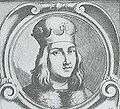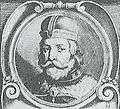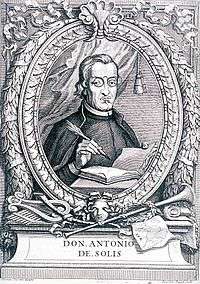Benoît Farjat
Benoît Farjat, a French engraver, was born at Lyons in 1646. He was taught the elements of the art by Guillaume Chasteau, whose manner he at first adopted; but he afterwards went to Rome, and acquired a greater command of the graver, and a better style of design, though he is not always correct. He died in Rome in 1724. There are by him some portraits, and various subjects from the Italian masters; the following are the most esteemed:
Portraits
- Cardinal Federigo Coccia; after L. David.
- Cardinal Cornaro; after the same. 1697.
- Cardinal Tommaso Ferrari; after the same. 1695.
Subjects after various masters
- The Holy Family, with St. John; after Albani.
- The Holy Family, with St. John presenting a Cross; after Pietro da Cortona.
- The Marriage, or, according to others, the Coronation, of St. Catharine; after Agostino Carracci.
- The Virgin and Infant Jesns, with St. John presenting some fruit; after Annibale Carracci.
- The Temptation of St. Anthony; after the same.
- The Communion of St. Jerome; after Domenichino.
- The Death of St. Francis Xavier; after G. B. Gaulli.
- The Marriage of the Virgin; after C. Maratti.
- The Nativity of Christ; after the same.
- The Race of Atalanta; after P. Locatelli.
 Alexander Jagiellon, published in 1763
Alexander Jagiellon, published in 1763 Bolesław III Wrymouth, published in 1763
Bolesław III Wrymouth, published in 1763
gollark: ... no, it's for homoiconicity.
gollark: "Simple" does not imply "fast to write" (look at Go, although it's more surface-level simple).
gollark: Æ.
gollark: Some of the time it's just stupid, like in `let`s.
gollark: Well, yes, via macros probably.
References
| Wikimedia Commons has media related to Benoît Farjat. |

This article is issued from Wikipedia. The text is licensed under Creative Commons - Attribution - Sharealike. Additional terms may apply for the media files.
